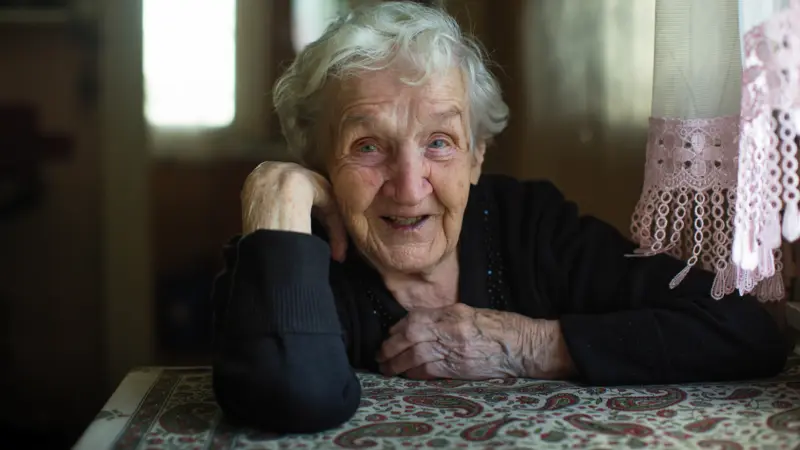Need to build much more accessible and adaptable homes across Scotland
New research on the housing needs of older people in Scotland has highlighted a need to increase the availability of accessible and adaptable homes so that people can live well and independently for as long as possible.
Age Scotland’s focus group research, funded by the Scottish Government and published today, is an extension of the major national housing survey into the needs of older people released last year. It highlights the preference of older people to be able to live in a home with step-free access, that was over a single storey and had access to a garden.
The study was undertaken in November and December 2020 and digs into how people’s experiences of the COVID-19 pandemic has affected their lives and housing decisions.
It reveals that community links and relationships with others nearby are key to decision making about housing choices, with people more willing to make do with a home that does not fully suit their needs if they feel settled in their area. A serious life event such as deteriorating health is the most likely catalyst for older people to move home, and these moves often occur later than required.
People were also found to have a fairly low awareness of services to help them make home adaptations and varying availability across Scotland.
With an ageing population, Scotland needs to ensure its housing stock is not only fit for the future but is able to meet the needs of older and disabled people now.
The report recommends that more homes which are accessible and adaptable are built, including targets for local authorities; that the Scottish Government work with housebuilders to deliver a greater mix of home types in new developments and foster intergenerational communities; ensure Scottish Government national housing strategies recognise and meet the needs of older people; and boost investment in care and repair services so that older and disabled people have easy and cost-effective ways to adapt their home wherever they live in Scotland.
Housing Minister, Kevin Stewart said:
“I welcome this report, which highlights the importance of listening to those with lived experience. The findings will help as we take on our new 20-year strategy for Scotland’s homes and communities, Housing to 2040.
"This new strategy shows how, subject to the outcome of the election, we will take forward a number of actions in this area, including the need for accessibility and adaptability for new homes, and the need to streamline the adaptations process and ensure planning is undertaken strategically across housing and health and social care services.”
Age Scotland’s chief executive, Brian Sloan said:
“We’re very grateful to the housing minister and the Scottish Government for their partnership and support with this research and hope that it plays a useful role in shaping housing policy going forward.
“Our new research builds on our previous analysis and has identified the strong preference of older people to remain living in the community where they have established links and relationships. The ability to stay in their own home and make the necessary adaptations to improve accessibility so that they can live well and as independently as possible is very important to them.
“The challenge older people face if they want or need to move home is a lack of available, suitable housing in the community which they are part of or close to a support network. They are often looking for homes that are accessible, a manageable size, preferably on one floor, with a limited number of steps or step free access and ideally with garden space.
“We need to see a significant increase in the availability of accessible and adaptable housing across Scotland and in every community. Housebuilders should also look to have a greater mix of home types.
“Addressing these needs will not only boost the health and wellbeing of older and disabled people and ensure that Scotland has housing stock fit for the future, but also improve the availability of housing for people of all ages and stages in the places where they want to live.
“The Scottish Government’s new Housing to 2040 strategy is very welcome and has the right ambition for the future and we hope that the future National Planning 4 framework will also help realise the needs outlined in our research.”
Age Scotland’s recommendations:
The Scottish Government should ensure that their housing and planning strategies, such as Housing to 2040 and the National Planning Framework 4, recognise the housing needs of older people and outline measures to meet them.
The Scottish Government should consider how it can work with and influence housebuilders to start building a greater mix of types of homes, including more accessible homes, that would start to address the lack of diversity in the housing stock.
Local Authorities should have targets to address the lack of choice and availability in accessible housing and they should consider ways, such as with their planning powers, in which they can encourage a wider range of housing type to be built.
It is important to recognise that there are a variety of preferences among older people about where they would like to live and the type of community they would like to live in. This research highlights a particular desire of participants to live in a community with a mix of ages and generations. House builders and Local Authorities should look at encouraging the building of housing developments which foster an intergenerational community.
Older people must have access to cost effective ways to make simple adaptations to their current home in order to live safely and well. Adaptations can enable a person to live in their own home for longer, prevent hospital admission and speed up hospital discharge. The Scottish Government and Local Authorities should look to boost investment in Care and Repair services across Scotland so that there is a consistent level of access wherever someone lives.
The impact of lockdown and subsequent Covid-19 related restrictions have demonstrated how valuable a person’s local community is to their wellbeing. Planning authorities should make greater efforts to ensure that there is good access to public services such as healthcare, amenities, transport links and green spaces when granting permission for new housing developments.
The Scottish Government should look at how internet connectivity, speed and reliability can be improved across Scotland as this is a significant barrier to older people being able to keep in touch with others and access information online. This requires greater rollout of highspeed broadband infrastructure across Scotland so that every home has fast internet access. Further work on supporting older people to learn how to use the internet should be pursued.
The Scottish Government should run a long-term, national awareness campaign of the various home energy efficiency schemes available to older people as this research, and previous Age Scotland housing research, has demonstrated that there is low awareness among older people about the schemes that are available. Greater promotion of services such as Home Energy Scotland would be beneficial so that older people would know where to turn for impartial energy advice.
The Scottish Government could consider providing support to a central advice service that could help people to switch their energy provider, so that older people have the option of calling and speaking to an advisor, which may provide a better service than online switching services.


